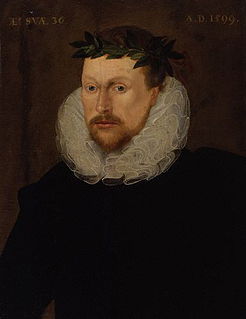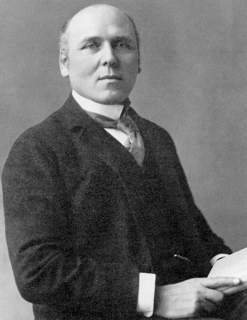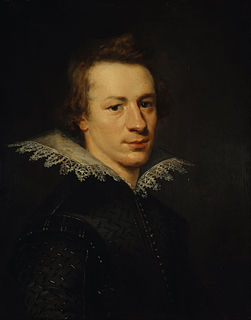A Quote by Michael Drayton
Here when the labouring fish does at the foot arrive, And finds that by his strength but vainly he doth strive; His tail takes in his teeth, and bending like a bow, That's to the compass drawn, aloft himself doth throw: Then springing at his height, as doth a little wand, That, bended end to end, and flerted from the hand, Far off itself doth cast. so does the salmon vaut. And if at first he fail, his second sommersault He instantly assays and from his nimble ring, Still yarking never leaves, Until himself he fling Above the streamful top of the surrounded heap.
Related Quotes
He that doth righteousness; that is, righteousness which the gospel calleth so, is righteous; that is, precedent to, or before he doth that righteousness. For he doth not say, he shall make his person righteous by acts of righteousness that he shall do; for then an evil tree may bear good fruit, yea, and make itself good by doing so; but he saith, He that doth righteousness is righteous; as he saith, He that doth righteousness is born of him.
The king is but a man, as I am; the violet smells to him as it doth to me; the element shows to him as it doth to me; all his senses have but human conditions; his ceremonies laid by, in his nakedness he appears but a man; and though his affections are higher mounted than ours, yet, when they stoop, they stoop with the like wing.
The quality of mercy is not strain'd, It droppeth as the gentle rain from heaven Upon the place beneath: it is twice blest; It blesseth him that gives and him that takes: 'Tis mightiest in the mightiest: it becomes The throned monarch better than his crown; His sceptre shows the force of temporal power, The attribute to awe and majesty, Wherein doth sit the dread and fear of kings; But mercy is above this sceptred sway; It is enthroned in the hearts of kings, It is an attribute to God himself; And earthly power doth then show likest God's When mercy seasons justice.
As Lucretius says: 'Thus ever from himself doth each man flee.' But what does he gain if he does not escape from himself? He ever follows himself and weighs upon himself as his own most burdensome companion. And so we ought to understand that what we struggle with is the fault, not of the places, but of ourselves
Branches grew from his hands, his hair. His thoughts tangled like roots in the ground. He strained upward. Pitch ran like tears down his back. His name formed his core; ring upon ring of silence built around it. His face rose high above the forests. Gripped to earth, bending to the wind's fury, he disappeared within himself, behind the hard, wind-scrolled shield of his experiences.



































